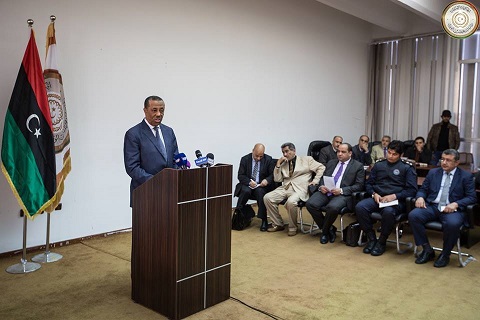By Libya Herald staff.
Tripoli, 6 April 2015:
Libya’s constitution must reflect the views, values and aspirations of the country’s population, including its minorities, . . .[restrict]the organisation Lawyers for Justice in Libya (LFJL) has said.
The LFJL has conducted a full review of the Constitutional Drafting Assembly’s draft recommendations posted in December 2014. Prior to the release of the draft, the drafting process was lacking in transparency, said LFJL, but the published draft was an important step offering opportunity for dialogue and engagement.
LFJL called for further engagement and transparency, saying that the CDA had to be more intentional with a widespread outreach programme. Such a programme should engage Libya’s minorities as well as the general population and take the views of minorities into account.
LFJL compared the draft recommendations with LFJL’s own findings from its Rehlat Watan tour, taken in 2014 to poll the public on its aspirations for the constitution, to see how closely the draft matches the views of Libya’s public.
LFJL also examined the recommendations to see how closely they complied with international standards, as well as the laws and treaties to which Libya is a signatory.
“LFJL has evaluated the draft to ensure that it supports Libya’s international obligations and provides a strong framework for enforcing those obligations,” the organisation said.
Furthermore, LFJL assessed how well the draft recommendations reflecedt best practices in constitutional drafting overall and how well the draft mirrored other constitutions in the region.
Based on these evaluations, LFJL presented its most immediate concerns, the first being a finding of contradictory provisions within the draft, sometimes within the same chapter. Gender equality was cited as an example. Men and women were said to be equal in one chapter, but later in that same chapter some citizenship rights (the passing citizenship on to offspring) were granted only to men.
Another concern pointed out by LFJL was the drafting style. According to the organisation, provisions were written in a style that reflected they were primarily suggestions rather than an enforceable law. Rights must be framed as enforceable rights, said LFJL.
The relationship between religion and the state as written in the draft was also an area of concern.
“Religion will potentially play a larger role in the Libyan state than ever before, without safeguarding the rights of religious minorities or ensuring the non-interference of religious bodies in the three branches of government,” stated LFJL.
LFJL also mentioned “detailed limitations of key human rights”. For example, the provision for freedom of expression includes a list of specific limitations. Furthermore, “obstructive limitations on civil society are also included, such as those requiring civil society organisations to register and prohibiting them from receiving certain foreign funding”.
LFJL’s review also mentioned that there were “hollow commitments” to equality, with “no provisions for implementation.” For example, there was no guarantee of seats for minority groups and women in any governing bodies.
LFJL’s director, Elham Saudi, noted: “The CDA has opened the door to much-needed feedback and discussion from the public and civil society, and LFJL urges the CDA to honour that commitment in order to find consensus on the constitutional provisions. The final draft constitution must reflect the needs and aspirations of the whole country, and protect the rights and freedoms of all those in Libya. LFJL’s commentary highlights key areas where the current draft recommendations fall short of these expectations. LFJL is ready to offer its technical assistance to the CDA during the remaining drafting process.”
LFJL plans to send its full review of the draft recommendations to the CDA. [/restrict]








